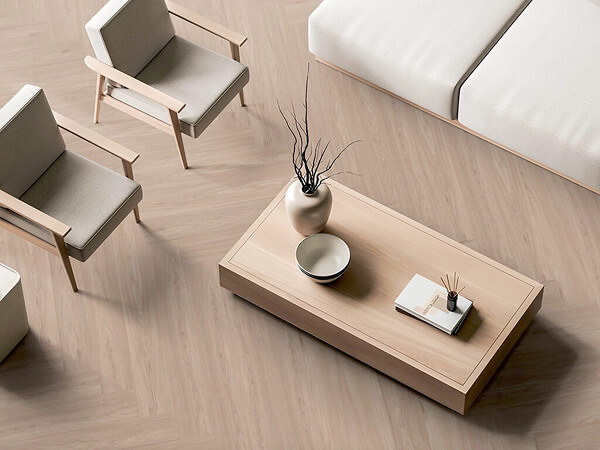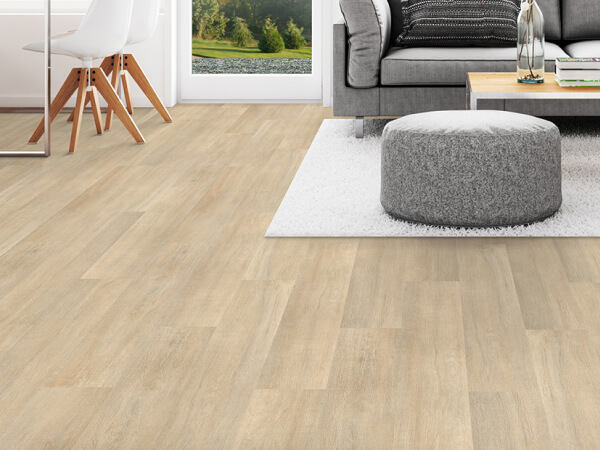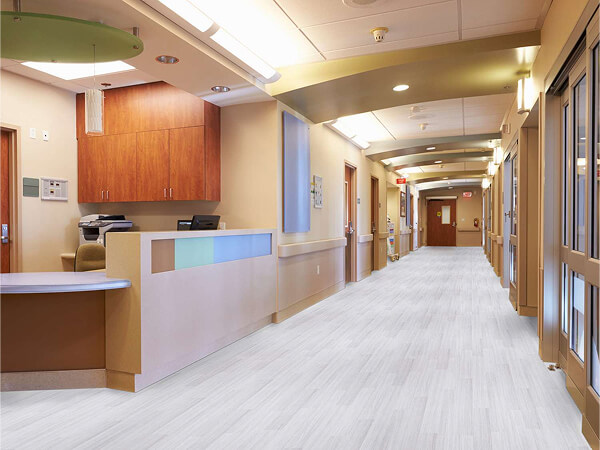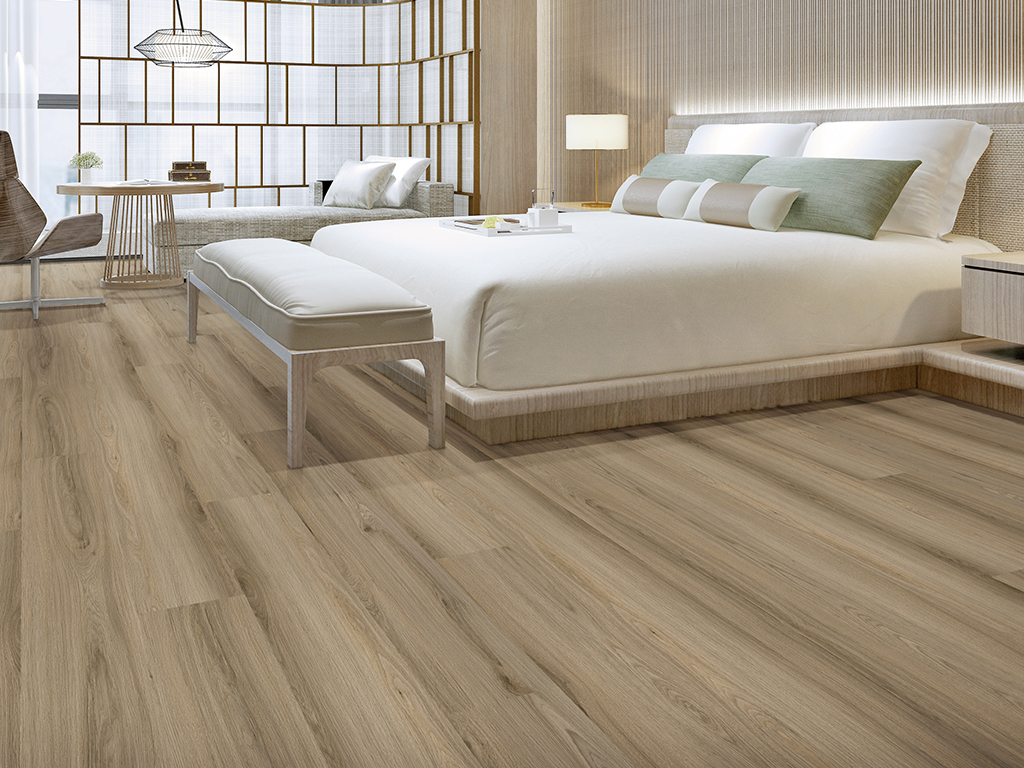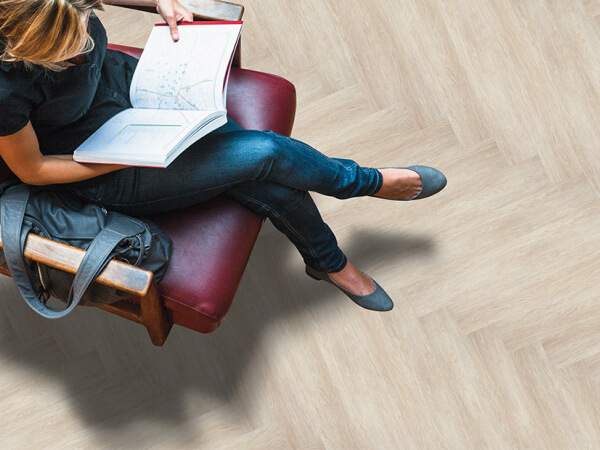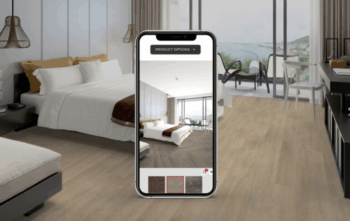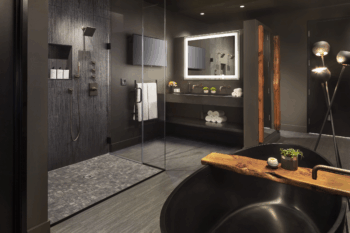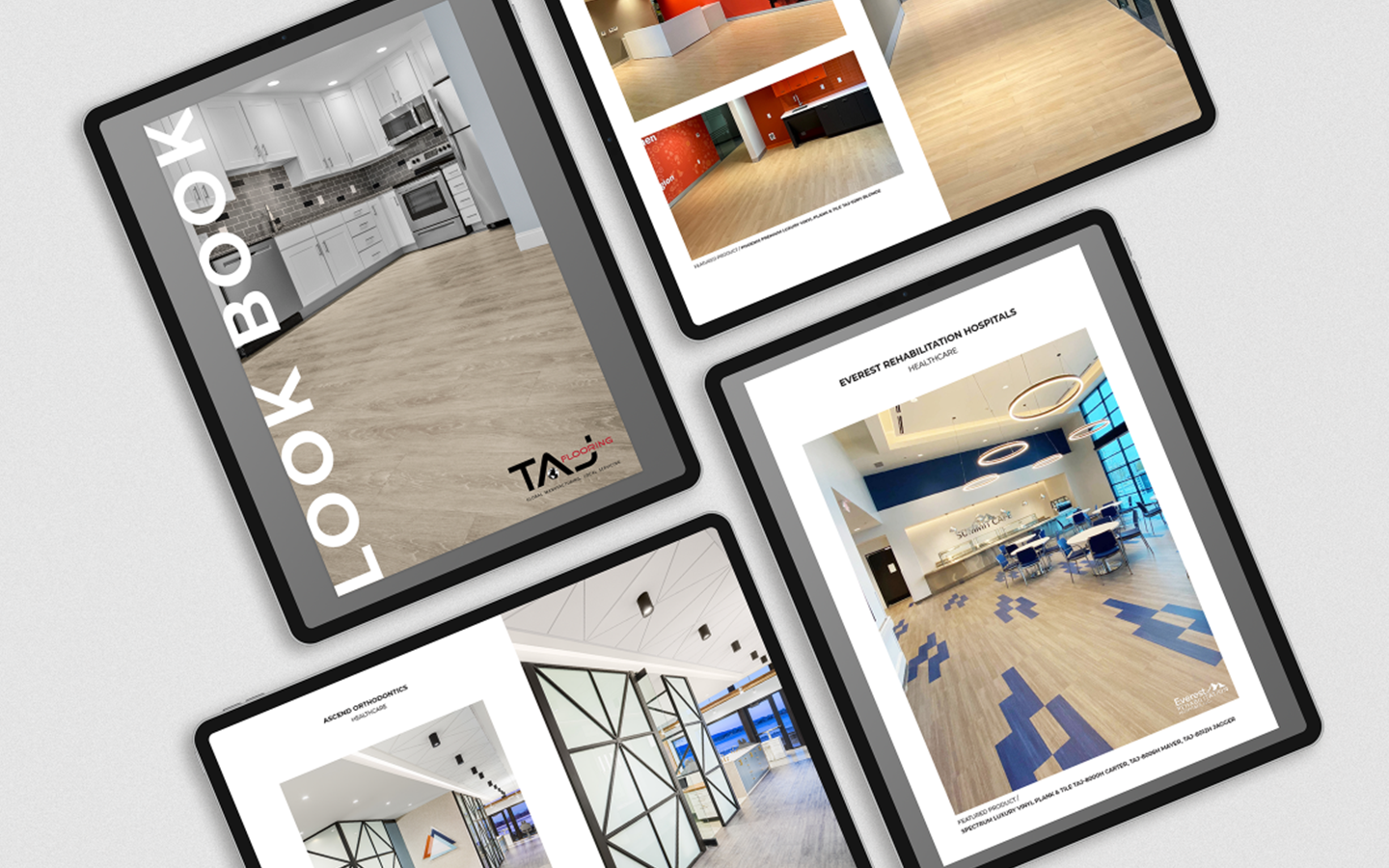The Right Sound Absorbing Flooring for Your Commercial Space
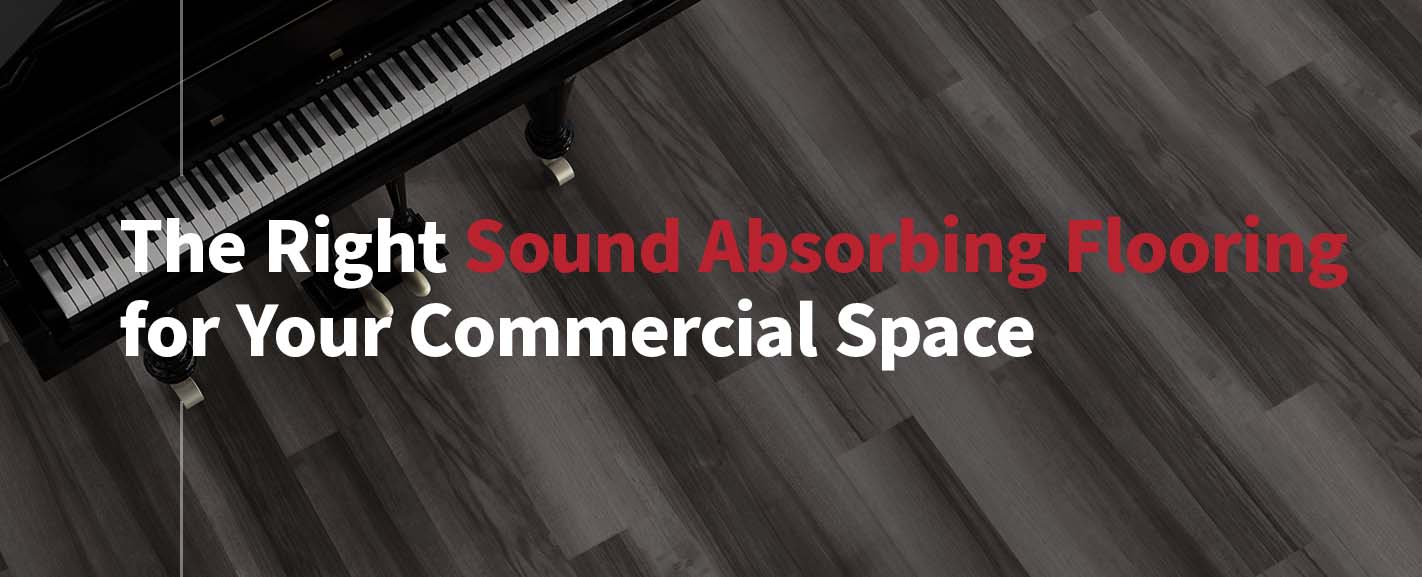
Sound absorbing flooring has become a priority for commercial settings in recent years as an important aspect of interior design. When building or renovating a commercial space, sound mitigation plays a critical role in establishing an environment conducive to productivity, collaboration and privacy, as well as the overall well-being of those who work, visit, or live within these spaces.
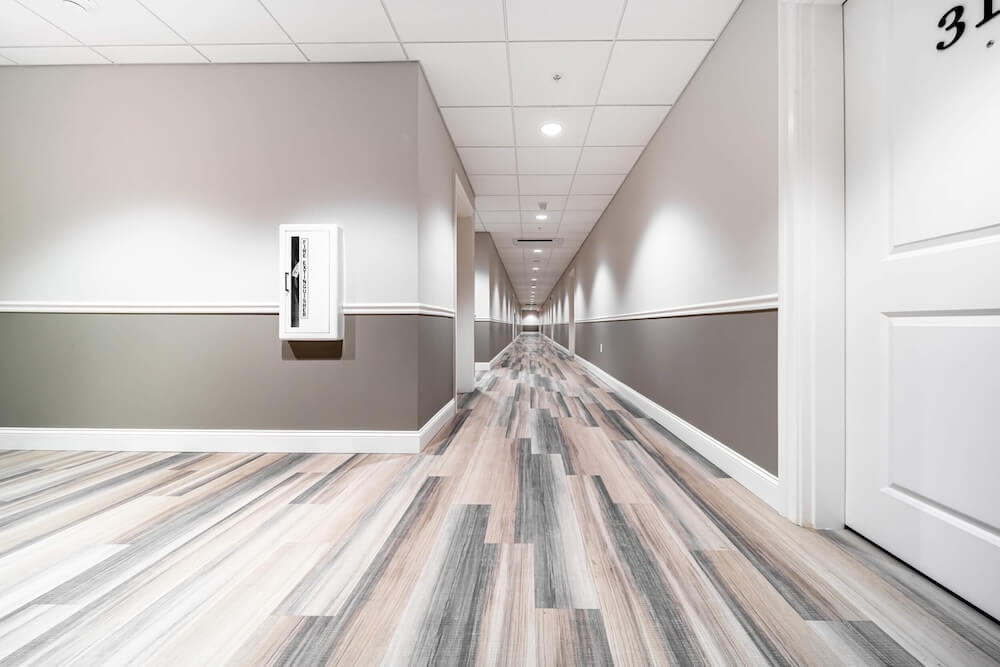
Featured Project: Pointe Place featuring Board Buff from our Color Infused Modular Acoustic Flooring collection. Photo by: George Murray
For example, living in a multi-family apartment complex can be a wonderful experience, filled with the sights and sounds of a bustling community. However, it can also come with its fair share of unwanted noise, particularly in the hallways and living units. The constant flow of tenants walking in and out, coupled with the sounds of noisy shoes, pets, and other everyday activities, can make it difficult to find peace and quiet. This is not just an issue faced by apartment dwellers, but also by those who frequent hotels, office buildings, and other public spaces where foot traffic is heavy.
Some flooring materials are better than others when it comes to reducing noise pollution and improving acoustics. Read on to learn more about the importance of sound absorbing flooring, common sound ratings you should know and some of the top options we recommend for a volume-optimized commercial space.
- Sound Absorbing Flooring: Why Is It Important?
- Types of Sound Absorbing Flooring
- Which Sound Absorbing Flooring Is Best for Your Commercial Space?
Sound Absorbing Flooring: Why Is It Important?
Anytime a noise occurs inside a given space, the sound is either absorbed, reflected or transmitted. If a commercial space is designed in a way that encourages noise transmission, employees may face constant disruptions in productivity. Just as humans do not necessarily work well amid physical clutter, the same principle applies to audio overload.
As a result, many of today’s interior designers are embracing a more organic approach known as biophilic design, which seeks to mimic the balance and serenity of our natural surroundings. For commercial spaces looking to buffer unwanted noise and improve acoustics for a more organic and biophilic audio experience, sound absorbing flooring materials provide a welcome solution.
Along with acoustic wall and ceiling applications, sound absorbing flooring is an important component of sound treatment within a commercial space. The primary goals of commercial sound treatment include:
- Preventing the transmission of sound from room to room and floor to floor
- Decreasing background noise to amplify speech or music within rooms
Additionally, sound absorbing flooring helps address both impact sounds — such as dropped items and heavy footsteps — and airborne sounds — such as music and speech.
To get the most impact out of your commercial soundproofing, we recommend that designers incorporate sound absorbing flooring with a combination of additional elements, including acoustic ceilings, wall treatments, and other finishes, such as white noise, fabrics and textiles, and more.
Learn more about sound ratings and how our products test when it comes to sound absorption.
Types of Sound Absorbing Flooring
Luxury Vinyl Tile (LVT)
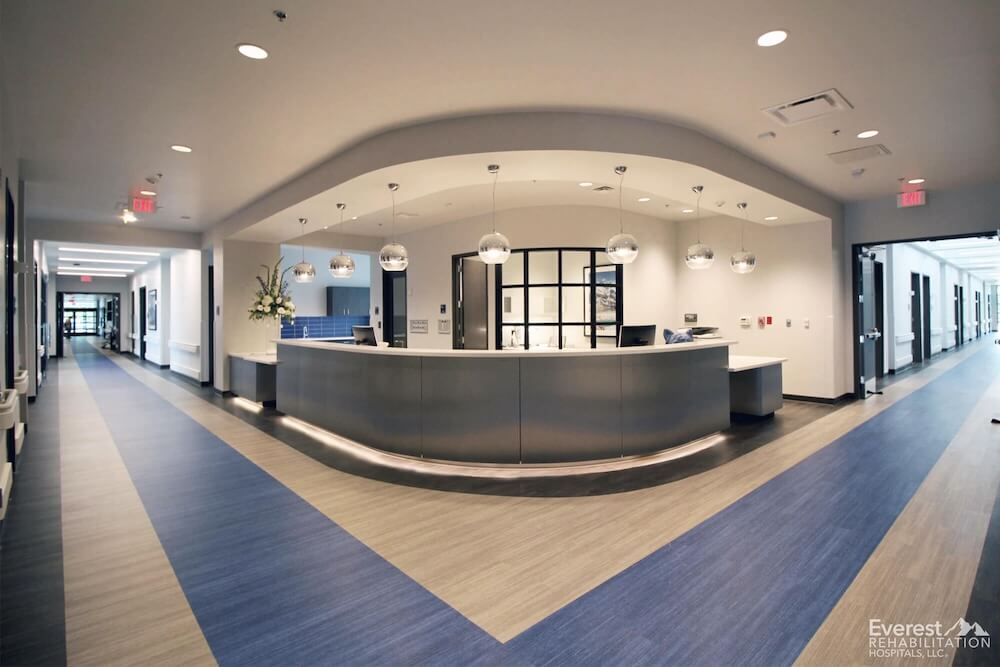
Featured Project: Everest Rehabilitation Hospital featuring Carter, Mayer and Jagger from our Spectrum Luxury Vinyl Plank and Tile collection. Photos courtesy of Everest Rehab
When selecting a hard surface for commercial environments, luxury vinyl tile (LVT) is one of the most versatile commercial flooring options on the market today. The standard commercial thickness is 3mm,and is a top choice when compared to other hard surfaces such as concrete, ceramic and porcelain. And not only does LVT come in a wide variety of price points and designs, but it is also known for being extremely durable and low-maintenance. Choosing a thicker LVT option, like our 5mm Modular Acoustic Flooring (see more details below), offers the greatest sound benefits.
Modular Acoustic Flooring
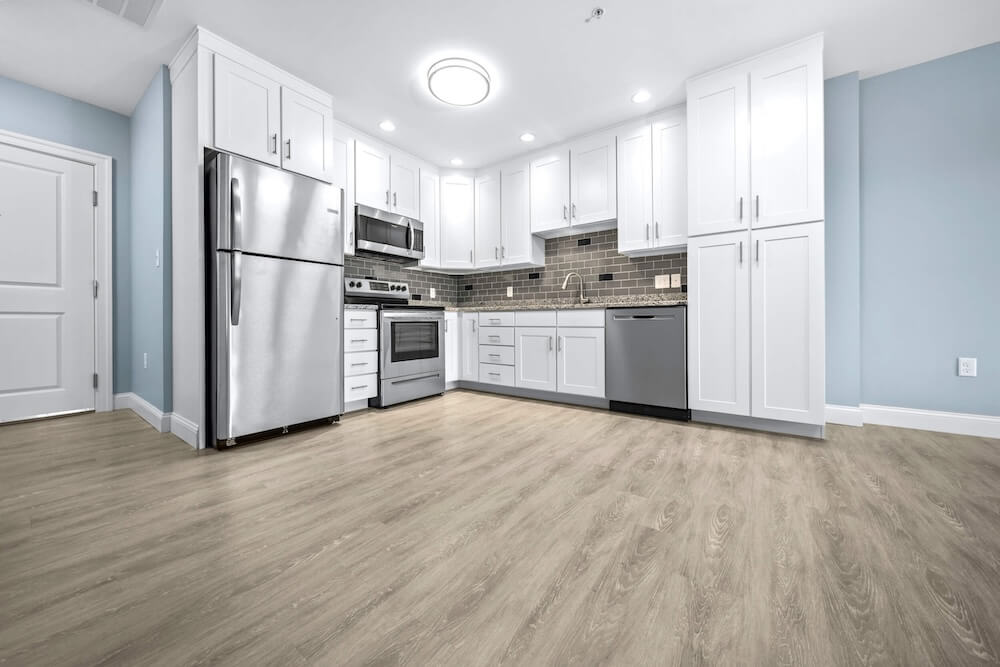
Featured Project: Pointe Place featuring Sharkskin from our Wavelength Modular Acoustic Flooring collection. Photo by: George Murray
Modular acoustic flooring is another sound absorbing option gaining traction in commercial spaces. This 5mm high-performance, fiberglass-reinforced luxury vinyl flooring product includes five different layers and a polyurethane finish. The extra sound absorbing layer is located in the center of the product and helps cement modular acoustic flooring as an exceptional choice for minimizing noise pollution and improving acoustics within commercial settings.
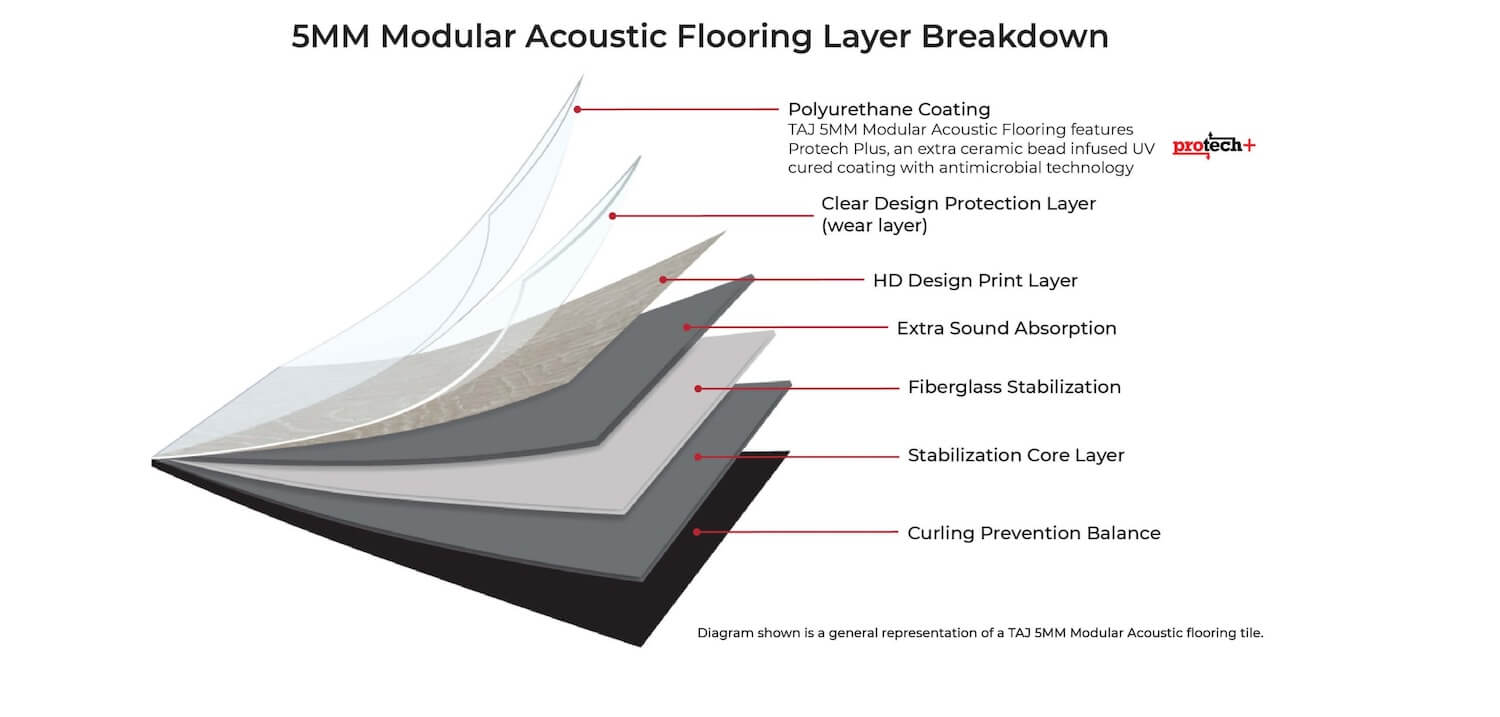
Resilient Vinyl Sheet Flooring
Resilient vinyl sheet flooring is a popular choice for a sound absorption option in active foot traffic areas or spaces that require greater hygiene benefits. TAJ currently offers Majestic vinyl sheet, a collection designed specifically for healthcare applications including hospital patient rooms.
Rubber Flooring
Rubber flooring is another sound absorbing option commonly installed in commercial buildings to combat noise pollution and improve acoustics. This type of flooring features a cushioned design and is frequently used in high-traffic applications, including hospital systems, schools and gyms. Rubber flooring is durable and highly effective at absorbing sounds. However, it is often sold as a sheet product, requiring a different type of installation and aesthetic. It’s also important to note that while rubber flooring may be used for certain types of installations like healthcare or sports facilities, it is not a standard commercial flooring aesthetic found very often in mainstream design due to its limited visuals.
Carpet Tiles
A popular choice in the soft-flooring market, carpet tile flooring is commonly used in commercial spaces such as hotels, classrooms and offices. Carpet tiles are effective at mitigating impact sound, and those with a higher pile and thick padding underneath are also great at countering noise pollution. Though it can be a suitable sound absorbing option, carpet tile flooring is harder to clean and maintain (and is less hygienic) than comparable solutions such as modular acoustic flooring.
Which Sound Absorbing Flooring Is Best for Your Commercial Space?
From versatile LVT to high-performance modular acoustic flooring, there are so many options when it comes to sound absorbing flooring materials for your commercial space. While some flooring materials like rubber and carpet tiles may provide noise reduction benefits, they lack the variety in design and degree of reliability offered by LVT flooring.
At the end of the day, you need a product that can deliver on everything from functionality to ease of maintenance to visual appeal. Contact TAJ Flooring for samples and assistance with your next flooring project.


